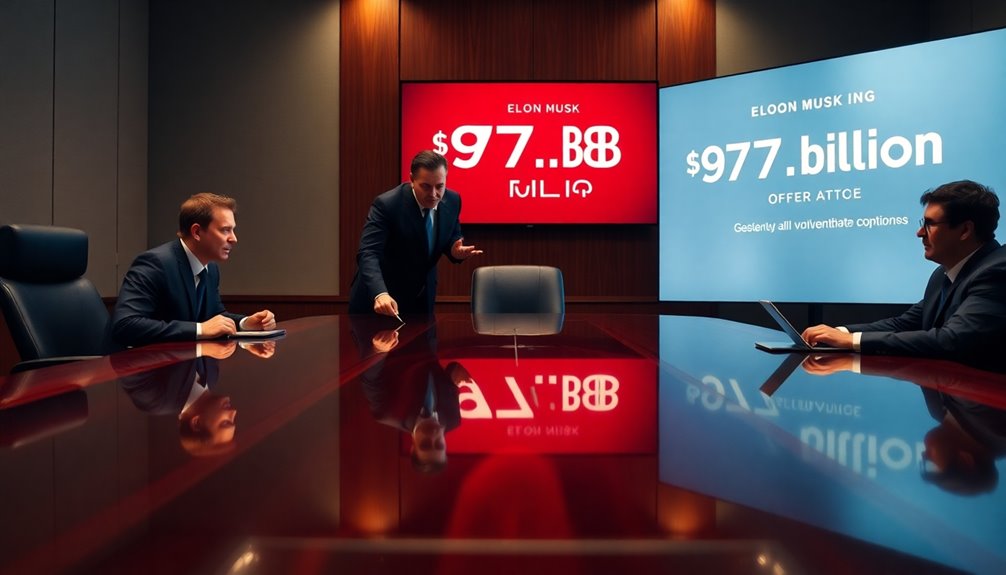You must consider the implications of Elon Musk's staggering $97.4 billion offer for OpenAI. This bid not only challenges CEO Sam Altman's leadership but also raises questions about the organization's future direction. With tensions simmering since Musk's exit in 2018, one has to wonder: will Altman stand firm, or could he be swayed by the allure of Musk's vision? The unfolding drama promises to reshape the AI landscape significantly.

Elon Musk has made headlines with a staggering $97.4 billion offer to acquire OpenAI, aiming to regain control and possibly reinstate its non-profit status. This ambitious bid isn't just a financial play; it's also about Musk's desire to reshape the direction of an organization he co-founded in 2015. Alongside a consortium of investment firms, he's looking to challenge the current leadership and influence that OpenAI has developed, especially as it transitions toward a for-profit model.
However, this offer hasn't been met with open arms. OpenAI's CEO, Sam Altman, has publicly rejected Musk's proposal, asserting that the board has no interest in selling. Altman even took a jab at the situation by jokingly countering with an offer to buy Twitter (now X) for a mere $9.74 billion, highlighting the stark contrast in valuations and perhaps the absurdity of the entire situation. With OpenAI's board firmly against the acquisition, it raises questions about what Musk's next steps will be.
The rivalry between Musk and OpenAI has intensified since he left the organization in 2018 due to disagreements over its direction. Once a collaborative effort aimed at creating AI for the benefit of humanity, things have soured, with Musk now launching his own AI venture, xAI, in 2023. This competitive landscape creates a complex dynamic, as both parties push the boundaries of what AI can achieve. Companies are keen on acquiring OpenAI due to its leading position in AI technology, particularly after the success of ChatGPT. In addition, the market growth projected at over 40% CAGR in AI tech by 2025 highlights the increasingly competitive nature of the industry.
Legal disputes loom large over this acquisition attempt, adding another layer of complexity. A federal court is currently involved in resolving matters related to Musk and OpenAI, and the potential for a trial could determine the future for both entities. If the case goes to court, it may not only affect the acquisition but could also reshape the AI industry landscape significantly.
The stakes are high, and the implications of Musk's offer extend beyond mere financial transactions. OpenAI's partnerships, notably with tech giant Microsoft, play a crucial role in its strategic direction and market positioning.
The outcome of this conflict could redefine not just the future of OpenAI but also the broader AI ecosystem. As a result, the question remains: will Altman and his board reconsider their stance, or will Musk's relentless pursuit of control push the boundaries of their rivalry even further?










